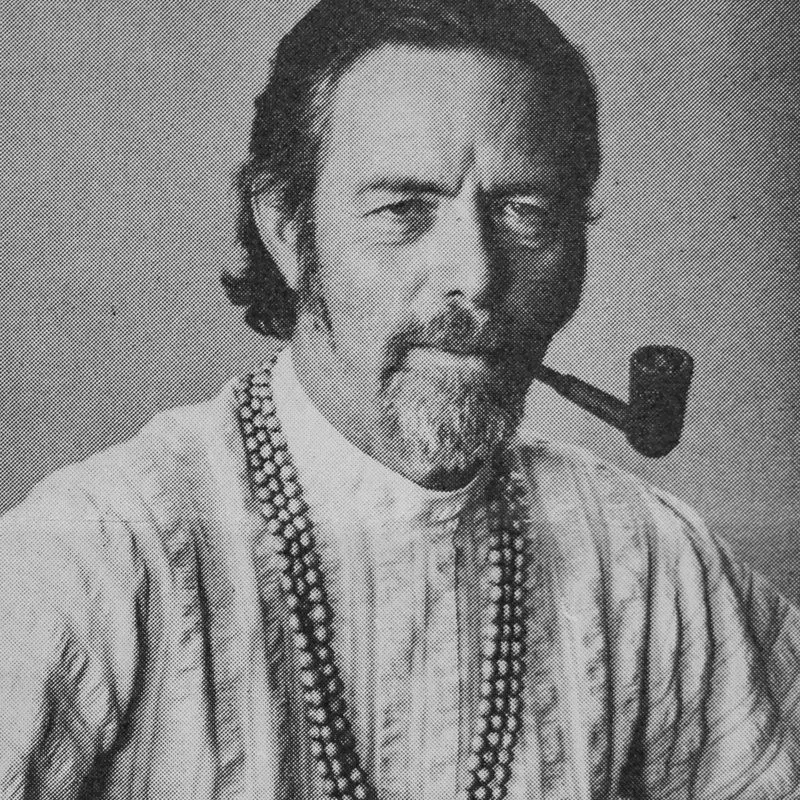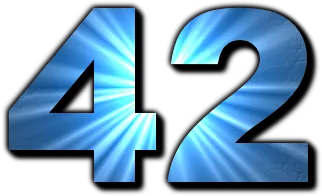
Dear reader,
today I would like to introduce you to Alan Watts, a man I discovered on the Internet years ago, who grew into my role model. First of all I apologize for the long introduction, but that's what I call the author's freedom:).
This is going to be soft-core philosophy.
I found Watts on youtube, through a facebook post and an excerpt from one of his lectures. I was fascinated by his voice from the beginning. I was wondering how I would describe him without immediately starting his profession.

Life, after several decades, made me a little more modest and I began to open up to what was still to be discovered outside of my own familiar paths.
Back to Watts. He got known "as an interpreter and populariser of Eastern philosophy for a Western audience." I would say, he did an exorbitant job. Also he was befriended to Aldous Huxley, best known for his book "Brave new world" and his wife and you can find an interview with Mrs. Laura Huxley and Watts on youtube.
What was it that Alan Watts said in that short audio clip that caught me on the hook?
It was something that many users on Steemit probably feel the same way, namely the question of what they really want to do in life. I mean, really, really.
I have to disappoint you, because it really is absolutely nothing special to want to get rid of the 9-17 o' clock routine without really knowing what a worthy substitute for it would be. Nor is it remarkable to feel superior to the stupid and adapted, because in one way or another we are all adapted to what is called the status quo (what you call "stupid" in others is merely your recognition of your own stupidity which waves "hello!"). At most, strange hermits do not belong in this category and those who have isolated themselves far from humanity. That's just what a lesson Watts taught me. That my attitude of being (or wanting to be) something special is merely an expression of a civilization that wants to see itself like this.
All sublimity can also be spared if you focus on the stupidity of others, because those whom we call such are not inferior to us. Thus, one group defines the other and those who are "in" will attain their definition only by those who are "out". Basically a very simple child's play. But children are probably by no means as inflexible as their adult educators.
Prickly and gooey people
Of course, you may say, dear reader, a definition of a group of people is only possible by using a different group for distiction. True. After Watts there are the "prickly" people and the "gooey". Those who draw strict lines and have defined everything exactly like the others, who let themselves drift through life a little bit and don't take it too seriously with the severity.
And already you are tempted to join one or the other group and as soon as this is done, you can say: "They are stupid and we are good", aren't you? Nonetheless you are both and neither nor. Depends.
What have I learned from Watts?
That it is of course obsolete to do this and that something like a manifest existence in a definition is merely illusion ("Mara" is catching you anyways, according to the definition of Buddhist doctrine: "the power of temptation, the tendency towards evil, moral conflict, and the influence of such factors as indolence, negligence, and niggardliness.").
Yawn. You've heard that a thousand times, haven't you?
That "life is illusion". So do I. When I heard this as a young girl, I didn't understand a word of it and thought that the people who came up with it had to be either terribly clever or terribly stupid. Illusion, my ass! I was there, full of physical strength and youthfulness and what could not be real about it? ... On the other hand ... in the very back of my young padawan-part of "me" I thought there MUST be something to it...
It all started with a funny statement from Watts (I'll get to it soon). Namely, the fact that our life is only a process, one of continual emergence and transgression, and that only our language stands in the way of us realizing that every minute in which our body experiences its way of life is subject to this process. Huh? In his words (and what he interpreted by studying various Asian teachings):
"An apple tree apples and the earth peoples."
Say it again: An apple tree apples and the earth peoples. And again. Can you sense or feel the fascination through this little unusual using of language that it hits something?
This unusual way of speaking runs through Watts's complete work and especially in his lectures it comes to appearances.
He once talked about an experiment with children and he asked them, "What's a thing?" The children considered and gave attributes like "things are round or square, fast or slow" or something like that. Only a nine-year-old girl said, "A thing is a noun." Do you understand that? I didn't quite understand that, but then I did, somehow....
Don't believe what priests are telling you - go on and find out for yourself

From the point of view of Buddhism, becoming and passing away is merely a matter of endless continuity and no beginning and no end. It is therefore pointless to ask after the beginning of all life and British author Douglas Adams was also on the trail of this assertion and gave his supercomputer the probably funniest answer, which he gave to the curious people after millions of years of searching: 42 <-- scroll down until you hit "Popular culture".
The answer to the question of the meaning of life, the universe and all the rest.
A popular phrase from Watts' mouth was also:
"The universe consists of burnt almonds."
Do we need to stress that it is completely pointless to ask such a question? In Buddhism's etiquette, it is also frowned upon to talk about it - as well as politics, the neighbor and economy. In their religion - as it is - there is no God, no creator of the world. The world is more or less self-sufficient and what would it be worth to have an answer to who or what the world created?
Watts emphasized that Western religion takes the principle of creation from the mechanical glasses of a great architect. So little children would ask their European mothers: "Mommy, how was I made?" (built). And not what Asian children ask: "How did I get into this world?" Or were at least doing so in Watts times.
To look at the self and the universe in the way Watts was providing it, I am quoting him:
This (new) self has no location. It is not something like a traditional soul, using the body as a temporary house. To ask where it is, is like asking where the universe is. Things in space have a where, but the thing that space is in doesn't need to be anywhere. It is simply what there is, just plain basic isness!
"The thing that space is in ... "
One can chew on that, no?

How easily, then, an unsophisticated person might exclaim, "I have just discovered that I am God!" Yet if, during such an experience, one retains any critical faculties at all, it will be clear that anyone else in the same state of consciousness will also be God. It will be clear, too, that the "God" in question is not the God of popular theology, the Master Technician who controls, creates, and understands everything in the universe. Were it so, a person in this state should be able to give correct answers to all questions of fact. He would know the exact height of Mount Whitney in millimeters. On the other hand, this awareness of a deeper and universal self would correspond exactly with that other type of God which mystics have called the "divine ground" of the universe, a sort of intelligent and superconscious space containing the whole cosmos as a mirror contains images... though the analogy fails in so far as it suggests something immense: we cannot picture sizelessness.
You may ask, what all this talk is good for. Now, for me it has a lot of value cause I consult people. It helps me a lot to look at humans and life in the way that I know that things never last long. As life (end death) is an ongoing process and my body and my mind change every second (even though that's hard to believe) I am not so much in danger to judge my clients I am working with. Would I behave in a way that I put them to a means end, I would do wrong. When a human being suffers and I would believe that his or her suffering is something manifest, I promptly would feel helpless myself.
Not to accept that all life is subject to a constant process of change,
throws you into the corner, to take everything that happens terribly seriously and to refuse to let go of unpleasant things (years of hatred, sticky disappointment, a stranglehold of doubt, etc.).
The reason why Buddhism is perhaps only superficially knocked down the doors of Westerners may also be due to the fact that it does exactly the same thing with goodness in life: None of it stays. One would like to get rid of the corrosive disappointment, but one would like to taste the end of a roaring celebration, the enjoyment of culinary delicacies or the sweetness of a received compliment for ever. But the good stuff also passes. Meh.
I laughed hard when Watts talked about the luxuries of life and used the example of all the yachts that were moored in the harbour would only be used by the rich as a party room, since very few of their owners were able to sail.
Nevertheless, such a symbol of money and status is not something you like to give up, although costs and benefits are absurdly related.
Of course, these comparisons mean the attachment to life itself
and why it is so reluctant to die in the western world. Eastern wisdom, on the other hand, says that birth is in fact already tragic and death should be celebrated with drums and trumpets, since the probability is at least given that there is no need to fear rebirth in the eternal wheel of life. Therefore, at least the Buddhists celebrate death and pity those who see the light of day again.
Now one must not take this as indifference to life. At the most as an invitation to behave with compassion towards all beings precisely for this reason.
For today, I'd like to leave you with a question that Watts asked himself:
How is twentieth-century man to gain a feeling of his existence consistent with twentieth-century knowledge? We need very urgently to know that we are not strangers and aliens in the physical universe. We were not dropped here by divine whim or mechanical fluke out of some other universe altogether. We did not arrive, like birds on barren branches; we grew out of this world, like leaves and fruit. Our universe "humans" just as a rosebush "flowers." We are living in a world where men all over the planet are linked by an immense network of communications, and where science has made us theoretically aware of our interdependence with the entire domain of organic and inorganic nature. But our ego-feeling, our style of personal identity, is more appropriate to men living in fortified castles.
Do you think, he is true also for the twenty first century? Sometimes Watts appeared to me as a pure optimist and sometimes I thought of him being way to pessimistic about how he perceived the world. ... That sounds familiar, no?
One of Watts favorite poem writers was A. E. Houseman and I finish this article with his words of poetry:
"I, a stranger and afraid. In a world I never made. They will be master, right or wrong; Though both are foolish, both are strong."
Thank you for reading!
P.S. I guess I would like to continue with Alan Watts, as there is a hell lot more to say about him. Next topic could be his view on consciousness altering substances. Interested? Please give sign in the comment section! Thank you.
All what I've written I collected out of my memory, except of course the quotes. That is why I did not give you any biography cause I am bad with numbers and locations.
Sources & where you can read about Alan Watts:
Quotes in the article: Alan Watts - A Psychedelic Experience - Fact or Fantasy? This essay appeared in LSD, The Consciousness-Expanding Drug / David Solomon, Editor, G.P. Putnam's Sons, New York ©David Solomon 1964
https://www.alanwatts.org Free downloaded book: Mara: The Buddha’s Encounters with Måra the Tempter by Ananda W.P. Guruge: https://accesstoinsight.org/lib/authors/guruge/wheel419.pdf Quotes Alan Watts: Bodhimitra (Buddhist monk): youtube-link - only German, sorry couldn't find a source of him in English Picture source: NASA: unsplash 42: By Originally uploaded by en:User: Martinultima - en:Image:Answer to Life.png, CC BY-SA 3.0, https://commons.wikimedia.org/w/index.php?curid=100406 Last quote: " I am not much of a muchness"
https://www.alanwatts.com
https://de.wikipedia.org/wiki/Alan_Watts
http://greatpdf.top/?book=0801959659
On the Taboo Against Knowing Who You Are: http://www.leary.ru/download/watts/Book%20On%20The%20Taboo%20Against%20Knowing%20Who%20You%20Are.pdf
https://www.goodreads.com/author/quotes/1501668.Alan_W_Watts
https://secularbuddhism.com/101-alan-watts-quotes/
By Alan Watts Foundation - http://www.alanwatts.org, CC BY-SA 4.0, https://commons.wikimedia.org/w/index.php?curid=64190421